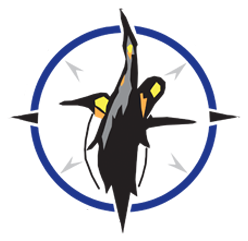How do I enroll?
Polaris is a choice school within Poudre School District (PSD). Families enroll through the PSD School of Choice application, and Polaris follows PSDs priority policies for decisions.
What is the adventure program?
Starting in 4th grade, students participate in Eco Week, with trips available through high school. Trips focus on leadership, EL Design Principles, and PSD goals. These can be physically demanding (e.g., Grand Canyon Backpacking, Rafting the Gunnison River) or academically enriching (e.g., Wolf Reintroduction in Yellowstone, Coral Restoration in Florida), helping students overcome fears and discover new strengths.
What does a typical day at school look like?
Students meet PSD course requirements through Expeditions—long-term studies of engaging topics. Expeditions include fieldwork, expert panels, and primary source research. Middle and high school courses use a block schedule for credit completion. Students collaborate and often create authentic projects.
Is there a lunch program?
Yes. Lunch is 35 minutes for middle and high school, with elementary having a 20-minute lunch and 20-minute recess. Hot lunch with options is served. Menu and prices are available online.
What types of electives are available at Polaris?
Elementary students rotate through electives like P.E., music, and art. Secondary electives include intensive one-week courses led by teachers, volunteers, or professionals, covering topics like cooking and biking. Regular offerings include P.E., art, Spanish, and French, with others based on student interests.
What is fieldwork?
Fieldwork extends learning beyond the classroom, offering real-world connections through expert discussions or service projects. Elementary students can have up to 20 fieldwork experiences per year; secondary students, 3-6 days annually.
How are the student-teacher relationships?
Teachers and students partner in learning, with teachers guiding students in credible research and critical thinking to understand personal and global impacts. EL teachers encourage students to overcome challenges and expand their abilities.
What is the community like?
Polaris includes students from across Fort Collins and beyond, embracing diverse perspectives. Creativity is a common trait among students.
How are families involved within the school?
Family involvement is central, both for student success and school support. Families volunteer on trips, fieldwork, and in-school events, building a community-focused environment. Please register here if you are interested in volunteering any time this school year.
How does Polaris compete with other schools academically?
Polaris performs well on traditional academic measures, with growth tracked in Colorado’s School Performance Framework (SPF). Check the Colorado Department of Education website for detailed results.


